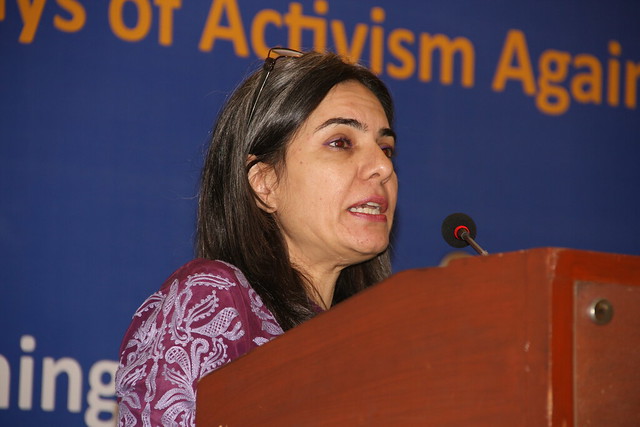Strengthening Human Rights in Sindh: Improving Policies and Protection Mechanisms
Date:
[Press Release]
Karachi, Pakistan – A statistical report of the Ministry of Law, Justice and Human Rights from January 2012 to September 2015, recorded a total of 8,648 incidents of human rights violation across the country. Of this, 3,768 cases were from Sindh; 1,599 in Punjab; 1,552 in Khyber Pakhtunkhwa; 1,490 in Balochistan and 239 from the federal capital, Islamabad.
The Provincial Government of Sindh in speaking up to end violence against women (VAW) and violation of human rights for both women and men, together with the National Commission for Human Rights (NCHR) and the United Nations Entity for Gender Equality and the Empowerment of Women (UN Women) organized a conference on “Strengthening Human Rights in Sindh: Improving Policies and Protection Mechanisms.” The event held on 6 December 2016 was part of Sindh’s 16 Days of Activism campaigning to end gender based violence from 25 November (International Day to End Violence against Women) until 10 December (International Human Rights Day) - 16 Days of Activism is a global initiative led by UN Women on behalf of the UN Secretary-General’s global campaign UNiTE to end VAW.
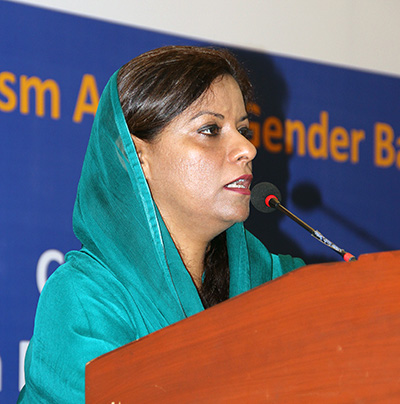
In opening the inaugural session Ms. Anis Haroon (Member, Sindh NCHR and former Chairperson National Commission on the Status) welcomed guests and provided an overview of the NCHR’s mandate and achievements.In his key note address Mr. Jamshed Kazi (Country Representative, UN Women Pakistan) shared “throughout 16 Days of Activism campaigning to end VAW, there have been stronger commitments and renewed momentums to ‘take action’. There was also a clear need to work on a comprehensive and multi-sectoral approach that focuses on strengthening implementation of laws and policies, enhancing survivors’ access to justice, services and safe spaces and ending the culture of impunity to end VAW.”
In speaking of the current situation of VAW in Sindh, Ms. Mahnaz Rehman (Resident Director, Aurat Foundation) shared that poverty has a feminine face as women are more vulnerable and victims of power dynamics and power structures existing within our patriarchal society. If equal access to citizenship is denied, this widens the equality gap between women and men.
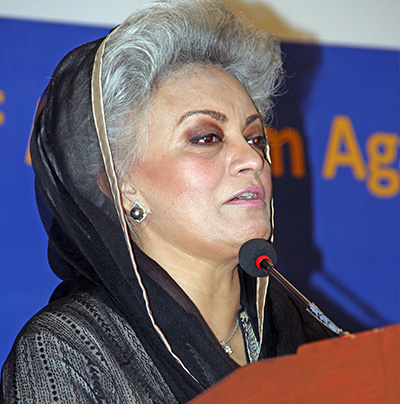
Speaking of human rights defenders, Ms. Zohra Yusaf (Chairperson, Human Rights Commission Pakistan) said “We have seen a spate of pro-women legislation passed over the last few years. This is a starting point and shows the State’s stance on ending violation of women’s rights. Implementation remains a challenge, and we must take it upon ourselves to collectively monitor legislative implementation at the ground level with facts and figures.”
Speaking on the role of donors in ending VAW and ensuring their human rights, Mr. Chad Wilton (INL Attaché, US Consulate General, Karachi) said: “Violence against women in an international context varies country by county and is not a problem that is unique to any one part of the world. Donor interventions try to bridge citizen and State mechanisms to become more forthcoming and accessible to understand women issues.”
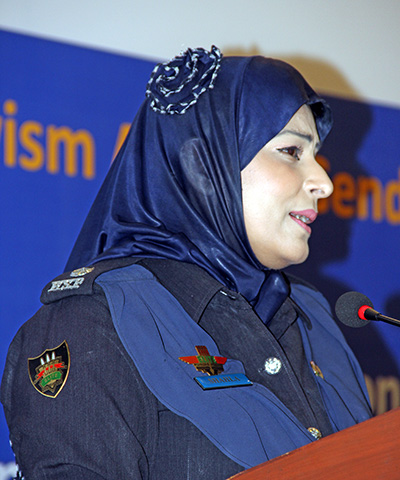
Dr. Nafisa Shah (Member of National Assembly) speaking of legislation and interpretation of legislation shared: “Public pressure for legislation to end violence against women and girls is making national and provincial parliaments come out with progressive laws. This shows a certain resolve by public representatives to come up with legislative responses. However, with devolution of power from the federal to the provincial level, there should not be four different interpretations of one bill within each of the four provinces. There must be one national law with local level implementation only.”
Speakers during the session on “Emergency Support Mechanism for Survivors of Violence - Best Practice from Public-Private Partnership” were Ms. Massarat Misbah (Depilex & Smile Again Foundation), Ms. Uzma Noorani (Panah Shelter Home) and Mr. Mohammed Ali Shah (Mohtasib); chairing this session was Ms. Shereen Mustafa (Secretary for Social Welfare).
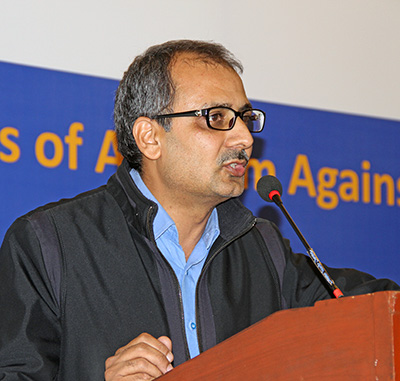
Speaking during the session on “Law & Practices: Procedures and Challenges” were Ms. Maliha Lari (Legal Aid Centre), Mr. Tariq Iqbal (Legal Right forum), Ms. Shehla Qureshi (Superintendent of Police, City Division) and Mr. Mushtaq Meher (Capital City Police Officer) – Justice (R) Shaiq Usmani chaired the session.
Concluding the conference were Mr. Zulfiqar Shah (PILER), Ms. Shahnaz Wazir Ali (Social Activist and former Special Advisor to the Prime Minister of Pakistan for Social Sectors) and Ms. Anis Haroon (Member, Sindh NCHR).
Photo Gallery
For more information contact:
Faria Salman
Strategic Management and Partnerships Officer &
Head of Communications for UN Women Pakistan
Email: [ Click to reveal ]
